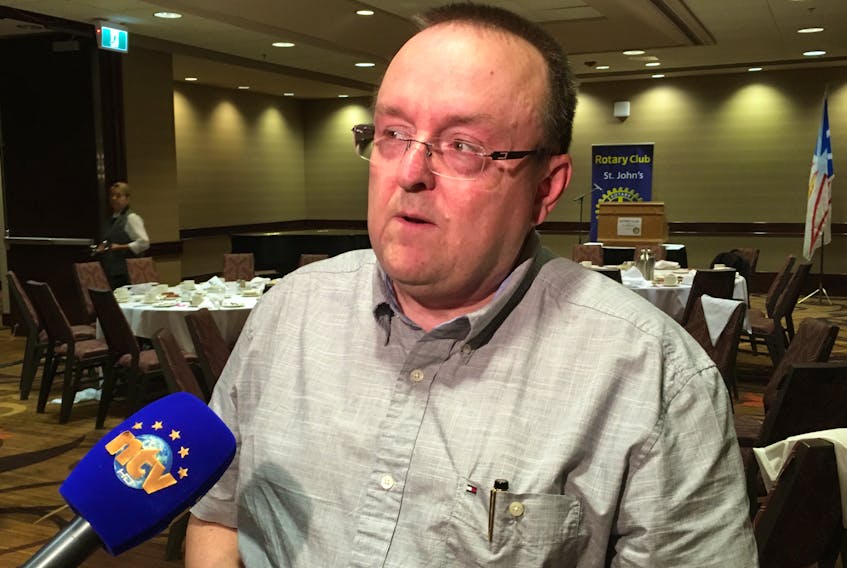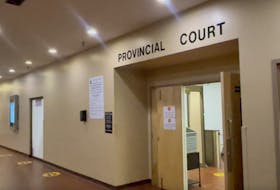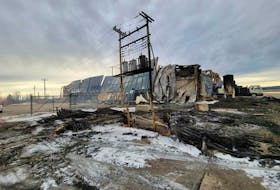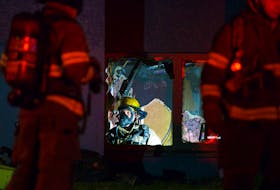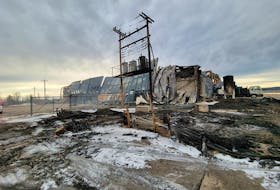ST. JOHN'S, N.L. — Ed Hollett sees shortcomings in the rate mitigation plans put forward to date by both the provincial Liberals and Progressive Conservatives. He says Muskrat Falls project costs demand a more immediate and direct approach.
“We can’t dig the plant out of the ground and magically erase all the bills, but we can rethink the payment scheme and all the things that got put into place in order to support the payment scheme,” he said in a speech to the Rotary Club of St. John’s at the Sheraton Hotel Newfoundland on Thursday.
Hollett is a public policy professional and was a special assistant to former premier Clyde Wells. He more recently wrapped up time as a fellow with the Atlantic Institute for Market Studies (AIMS) and continues to maintain The Sir Robert Bond Papers political blog, writing in detail on Muskrat Falls debt in April.
It only made sense to have ratepayers paying only for the cost of the energy they use from Muskrat Falls, he said at the podium. Hefty overruns and the cost of power not needed in-province should be a Nalcor Energy issue, and the province’s equity contributions an issue of public debt, he said.
The province should divest of Nalcor Energy, Hollett said, arguing there is no reason for the province to own an energy corporation.
Proposed privatization of Newfoundland and Labrador Hydro (sale of shares of the public utility) received strong pushback in the 1990s, but Hollett says the response would likely be different today.
The sale of some Hydro assets is already being investigated as a rate mitigation measure, in the ongoing review at the Public Utilities Board.
“We’re seeing a significant shift in public opinion generally about these issues. You will see, I think, a lot of pushback from the same people, some of the same people. I think they’re fewer in number,” Hollett told reporters following his speech.
He said it would be good to at least have the discussion.
It’s important to reconsider if potential buyers see it as a fire sale and don’t offer fair value, Hollett said, but a firm valuation would allow for better-informed decisions.
Hollett also wants to see a revisiting of the idea of adding a one-cent tax on power from the province – discussing it as a proposal with neighbouring provinces and utilities.
There’s no point in waiting for a financial crisis before talks, he said, suggesting the future he sees would make the tax in the interest of all parties in the long run.
A replacement to the Public Utilities Board (he proposed the Newfoundland and Labrador Energy Regulatory Authority) could be newly empowered to deal with rates and the private-sector players.
Hollett described the recent downgrade in the province’s credit rating by Moody’s as a warning. He said the province will only go further into debt by continuing as planned.
Raising the public debate
At a public session earlier in the week, part of the Muskrat Falls Inquiry, multiple speakers talked about a need for more public engagement on major public concerns and questions of public policy.
Hollett said it’s an easy fix to improve the level of public discourse.
“I absolutely, utterly reject this idea from some people who think that there has to be some kind of official structure, some kind of place where you go where it’s officially blessed for you to stand up, to create a safe space of some kind,” he said.
“Politics happens between two people, wherever they happen to be. So if people are concerned about it, they want to have that debate, they can have it in their house, they can have it in the street, they can have it at a fence, they can have it at a barbecue, they can come here to this meeting today, they can go wherever they want to – they can start a blog.”
He pointed to opportunities offered by local media outlets for people to express opinions — for example, in letters to the editor.
“Public discussion happens when people have discussions in public. And that’s really all there is to it,” he said. “It’s not magic. We’ve just got to start doing it.”

